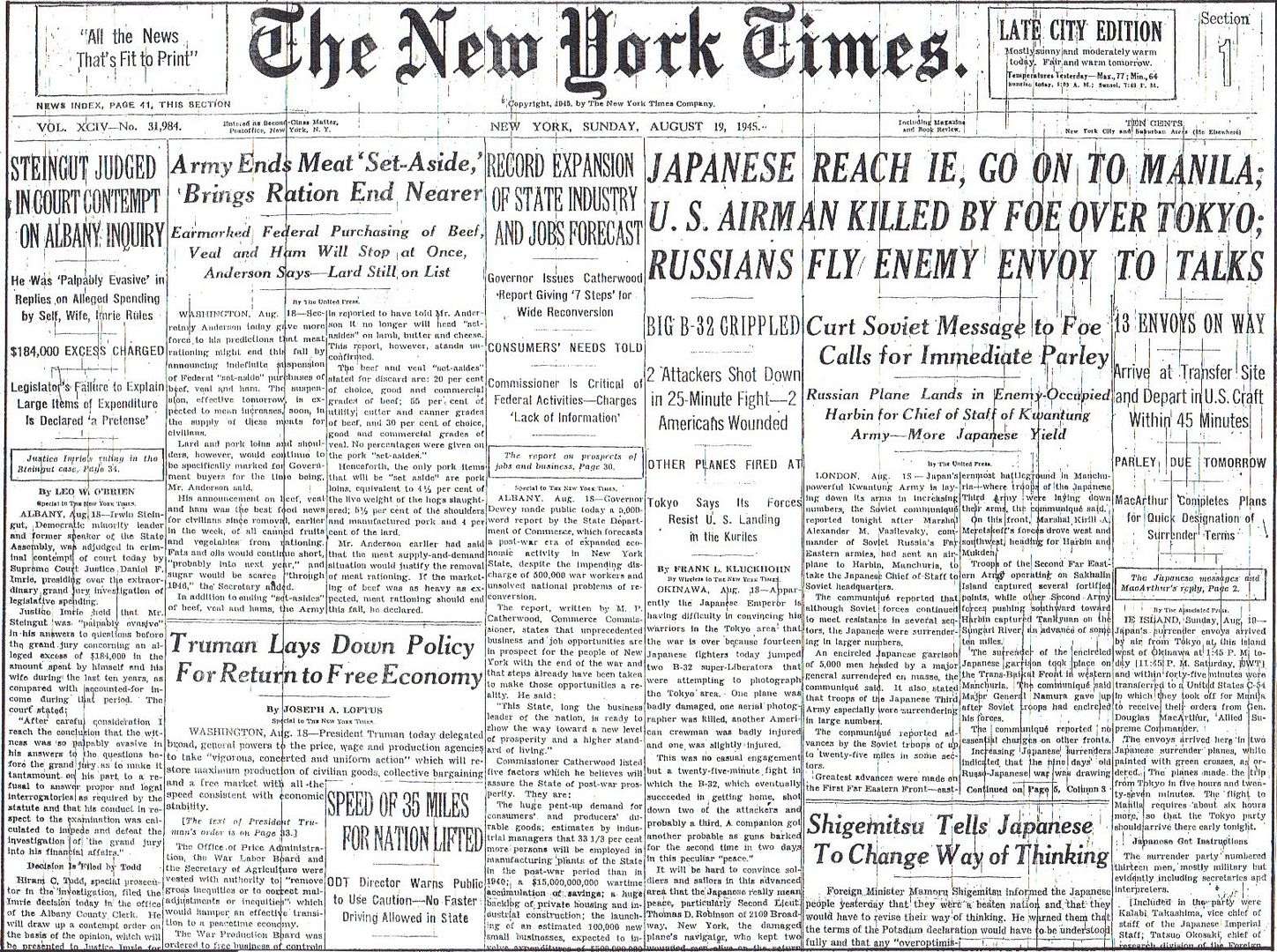
Posted on 08/19/2015 4:20:12 AM PDT by Homer_J_Simpson

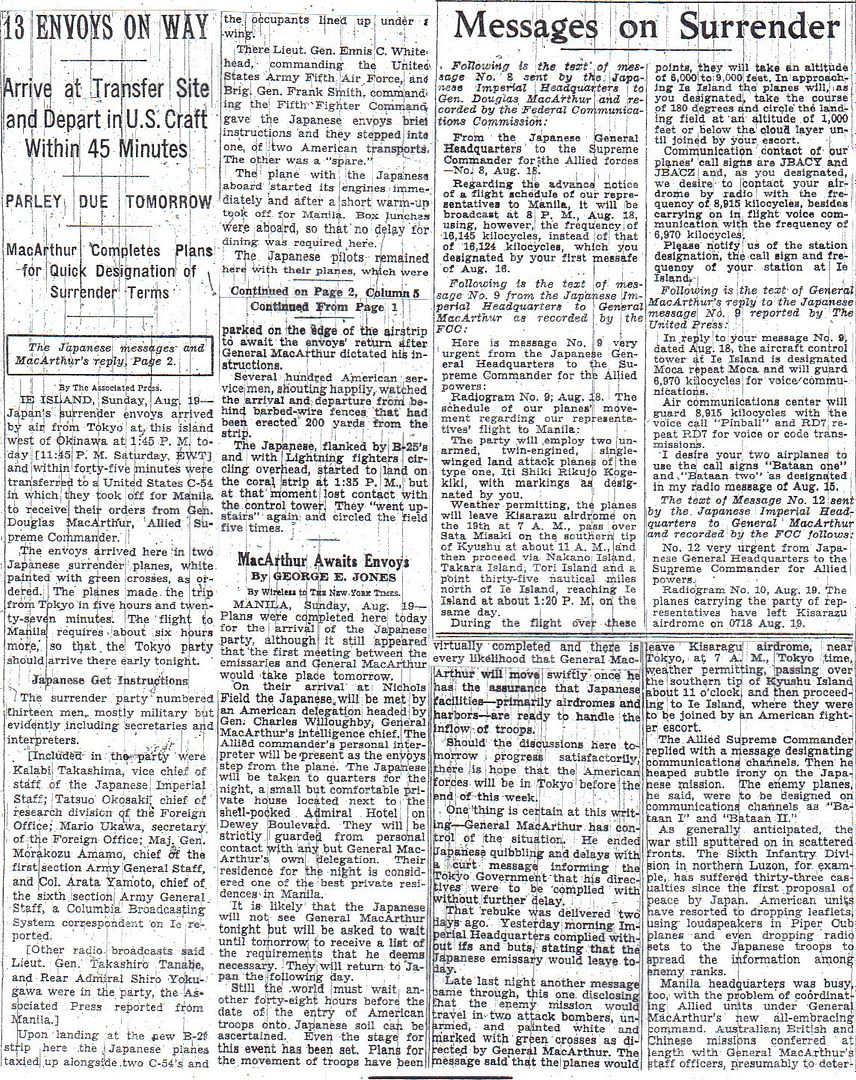
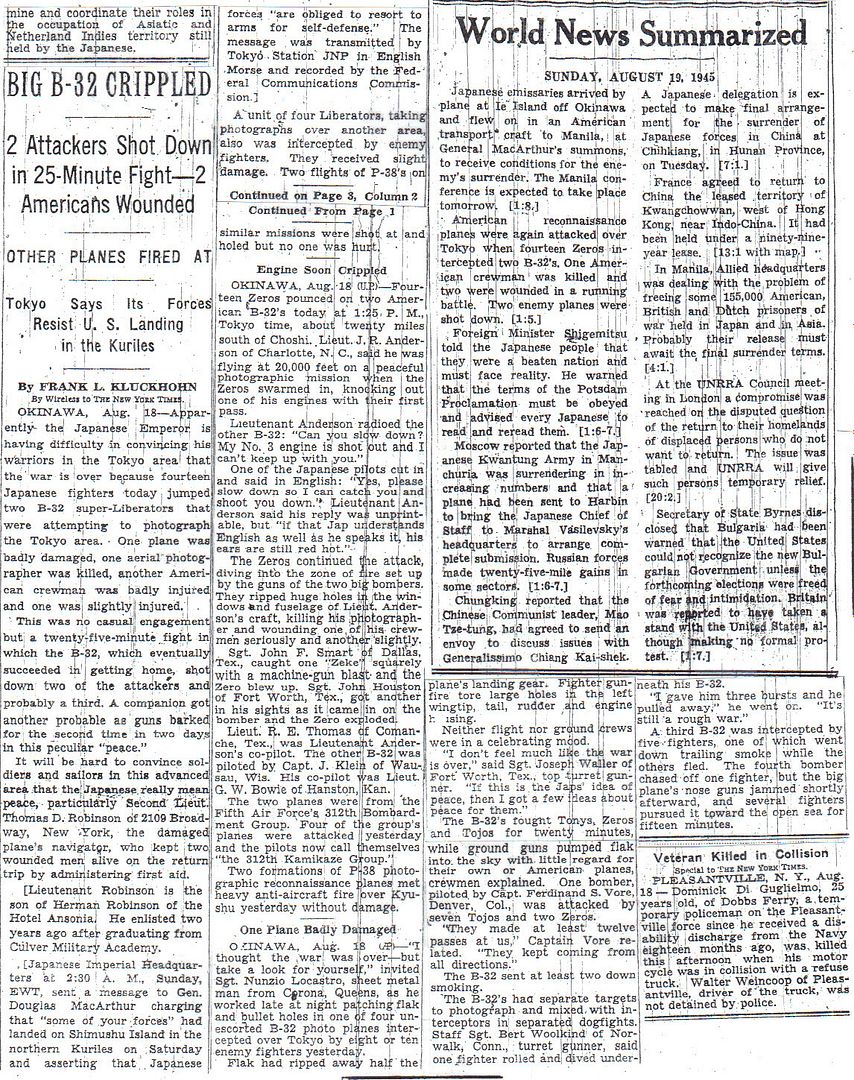
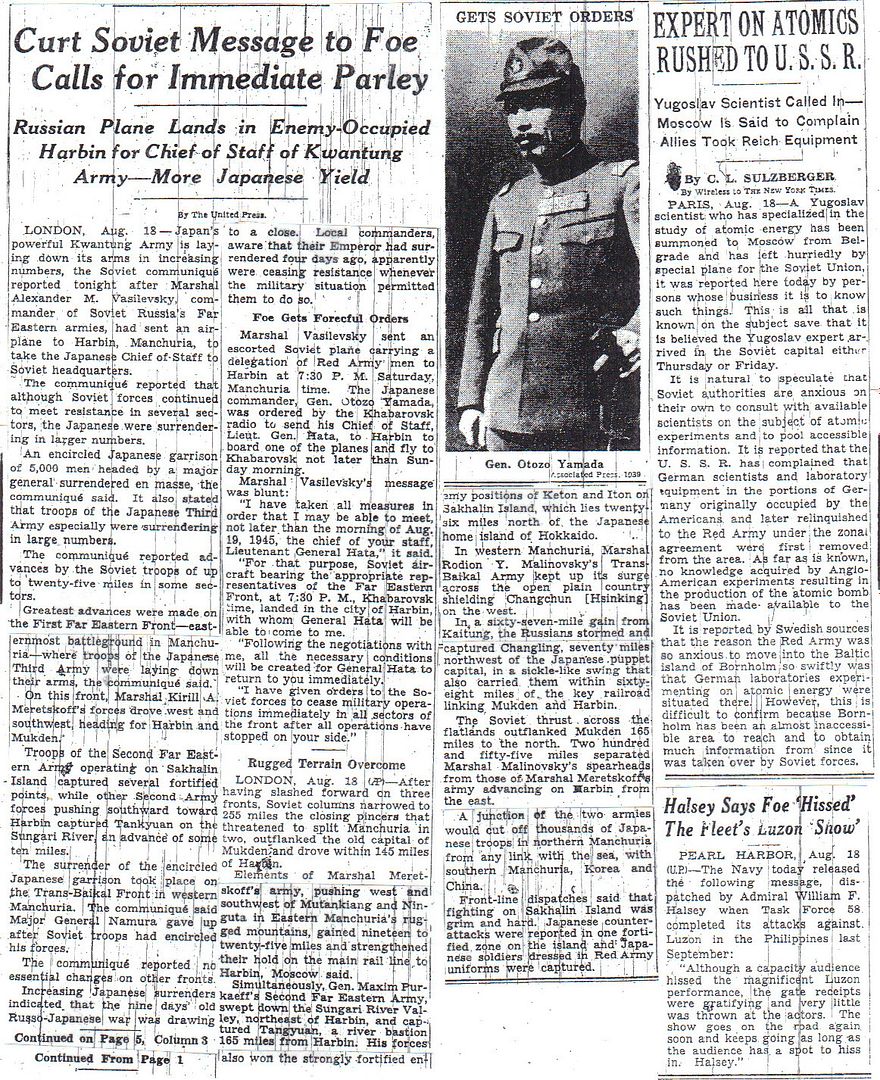
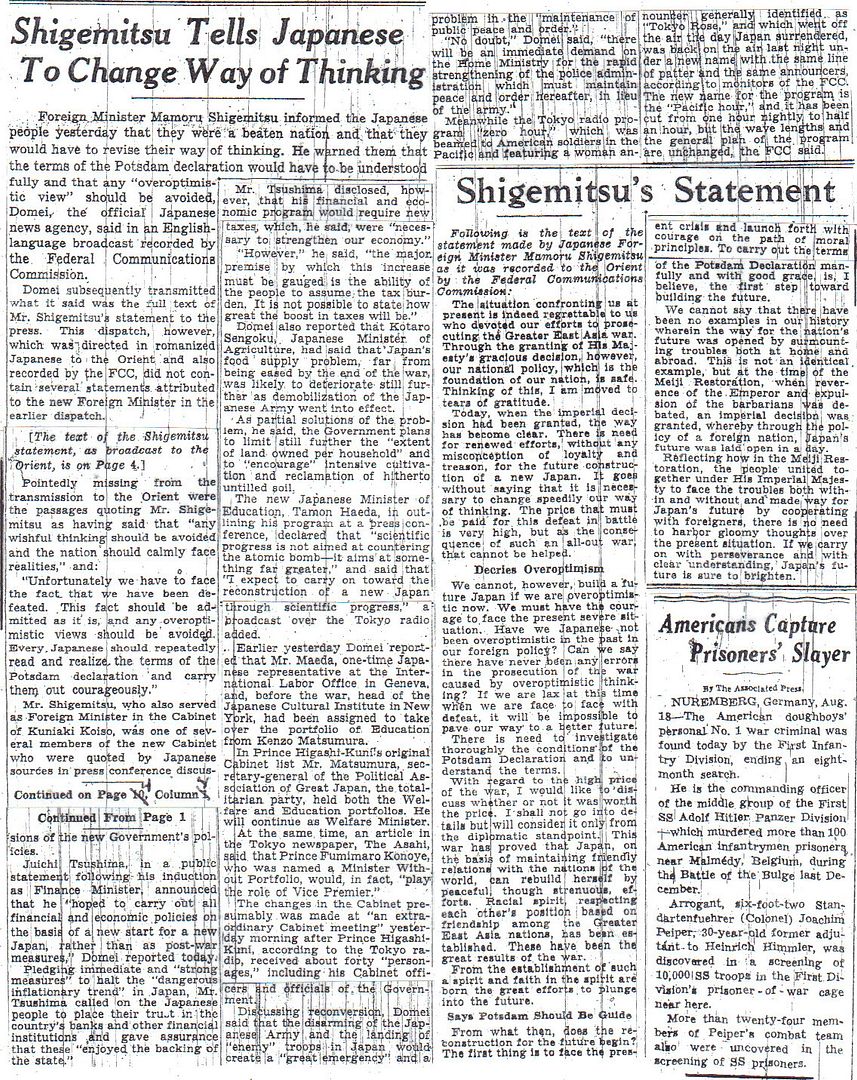
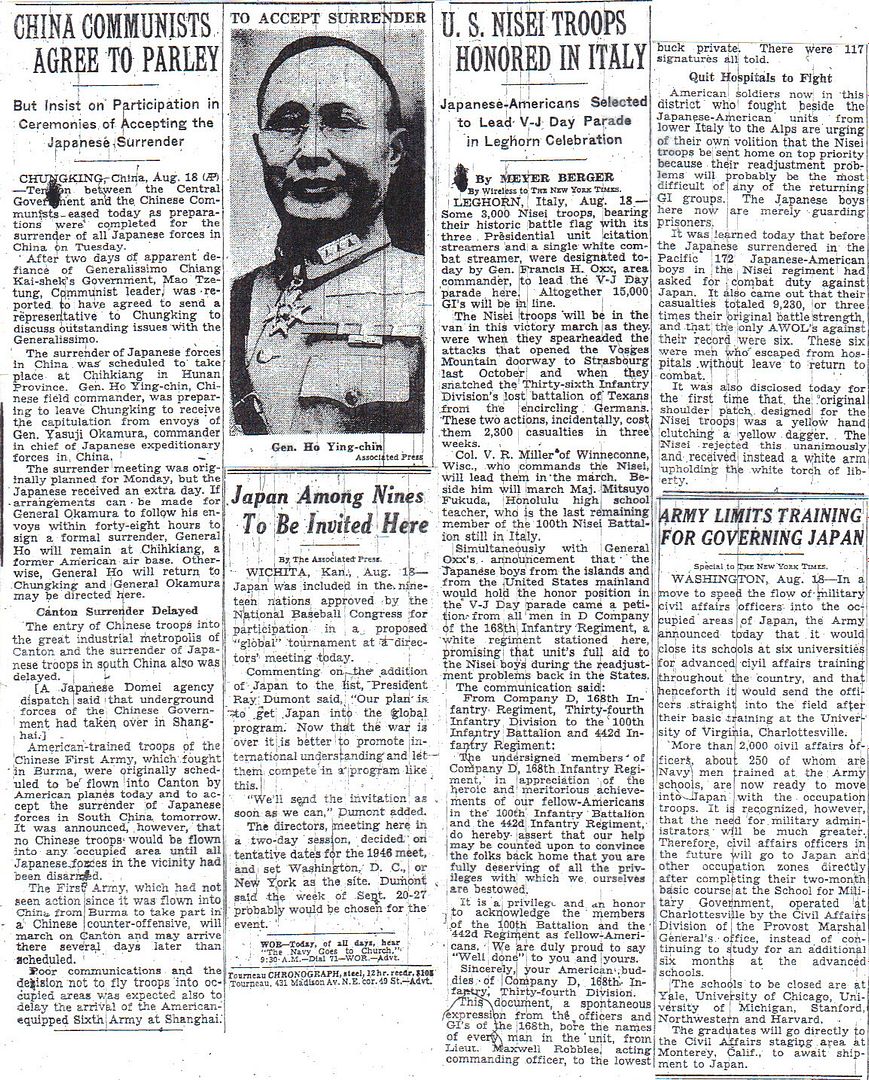
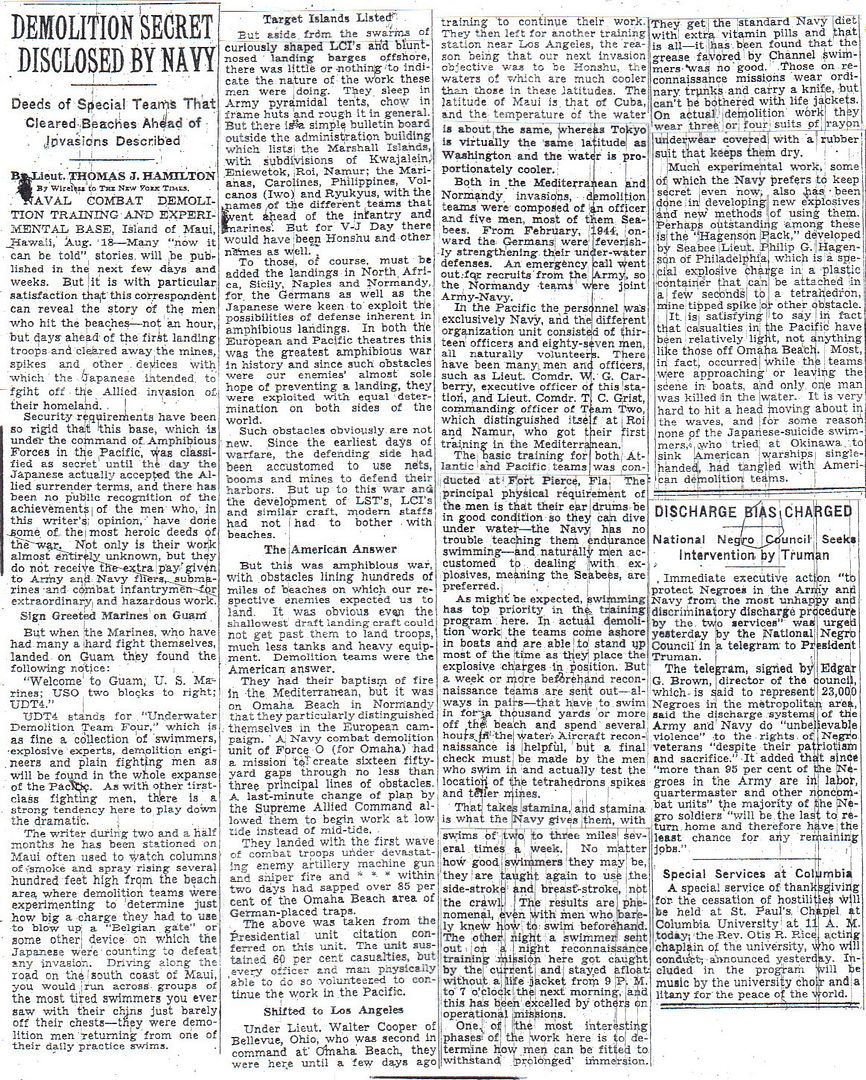
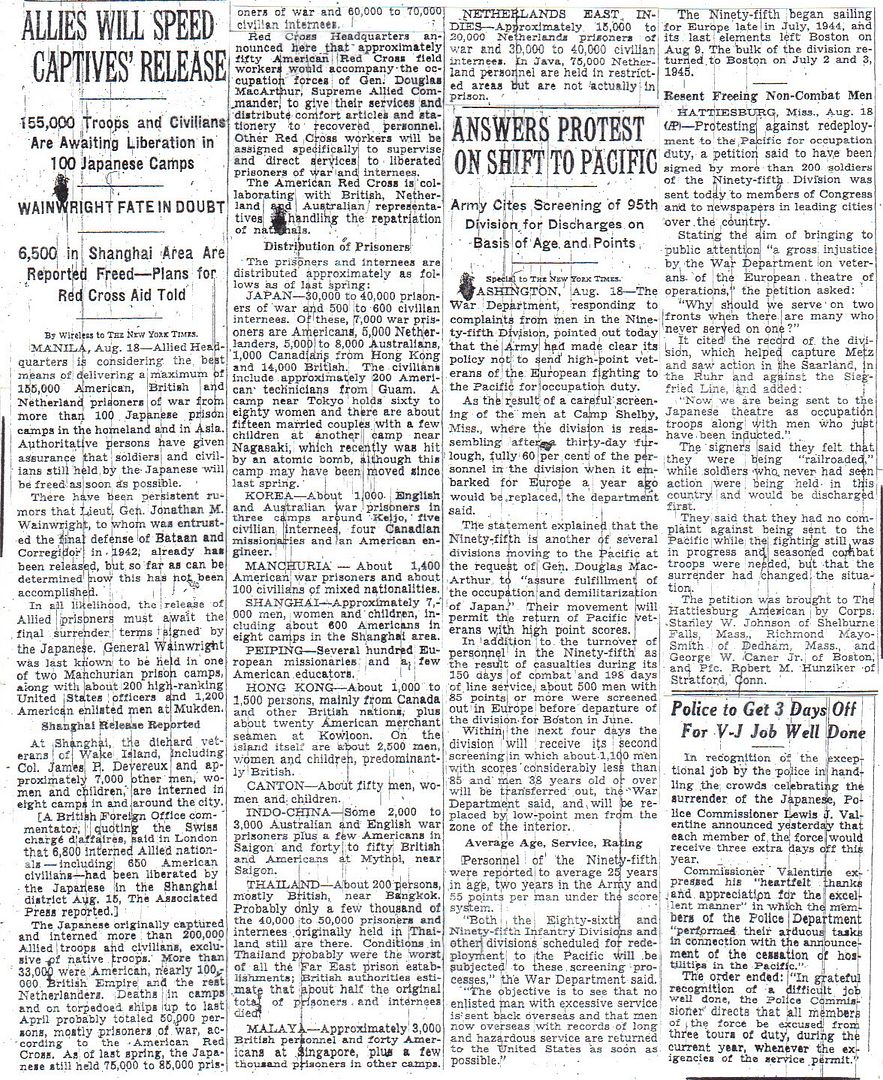
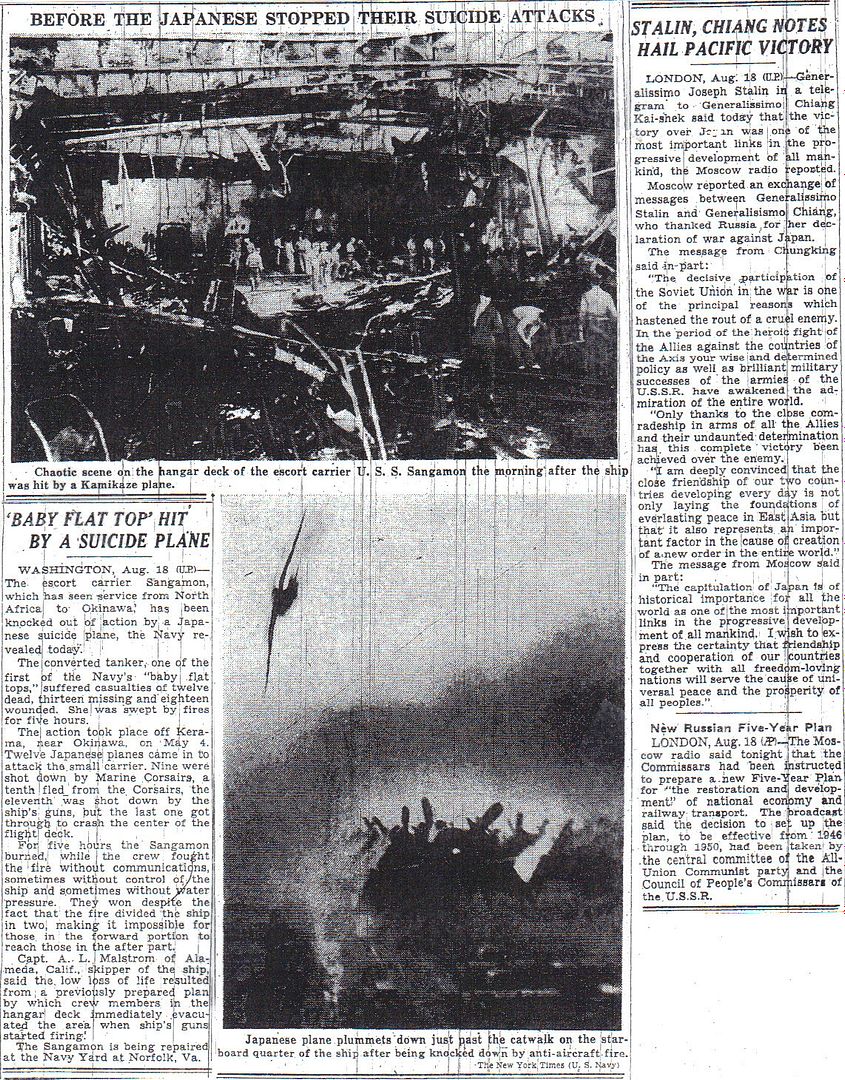
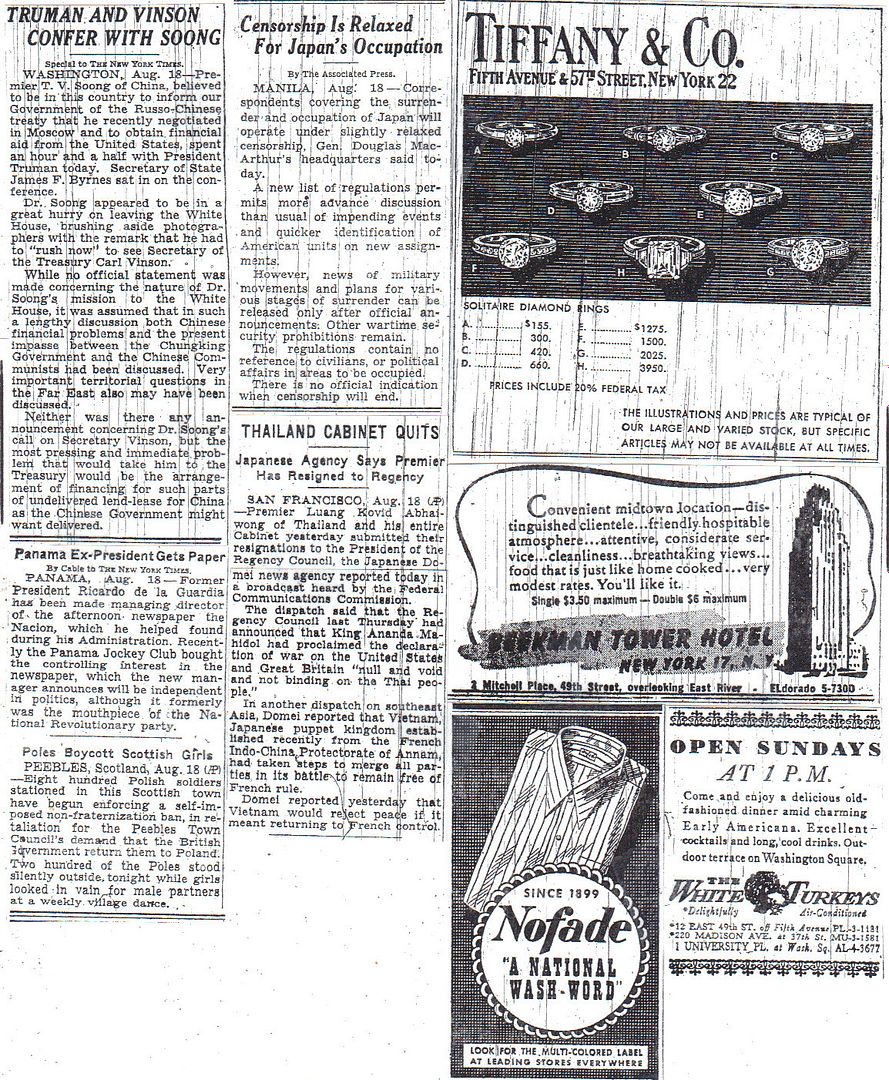
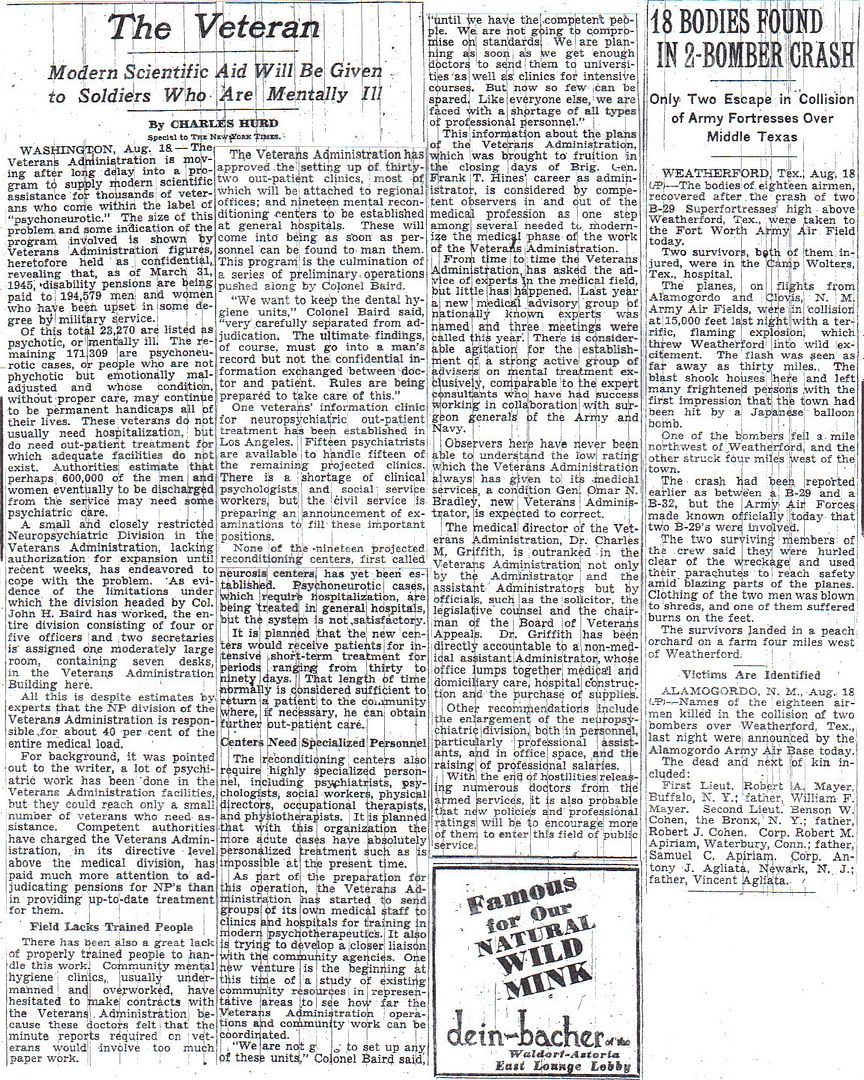
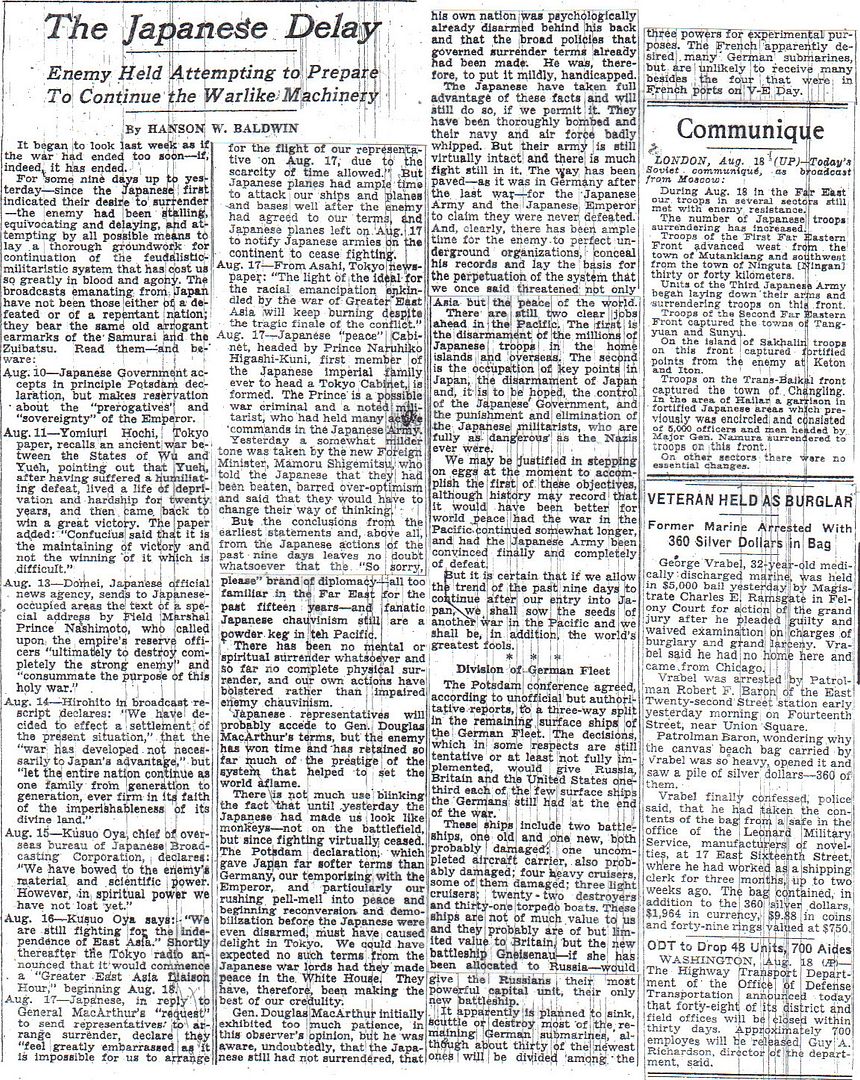
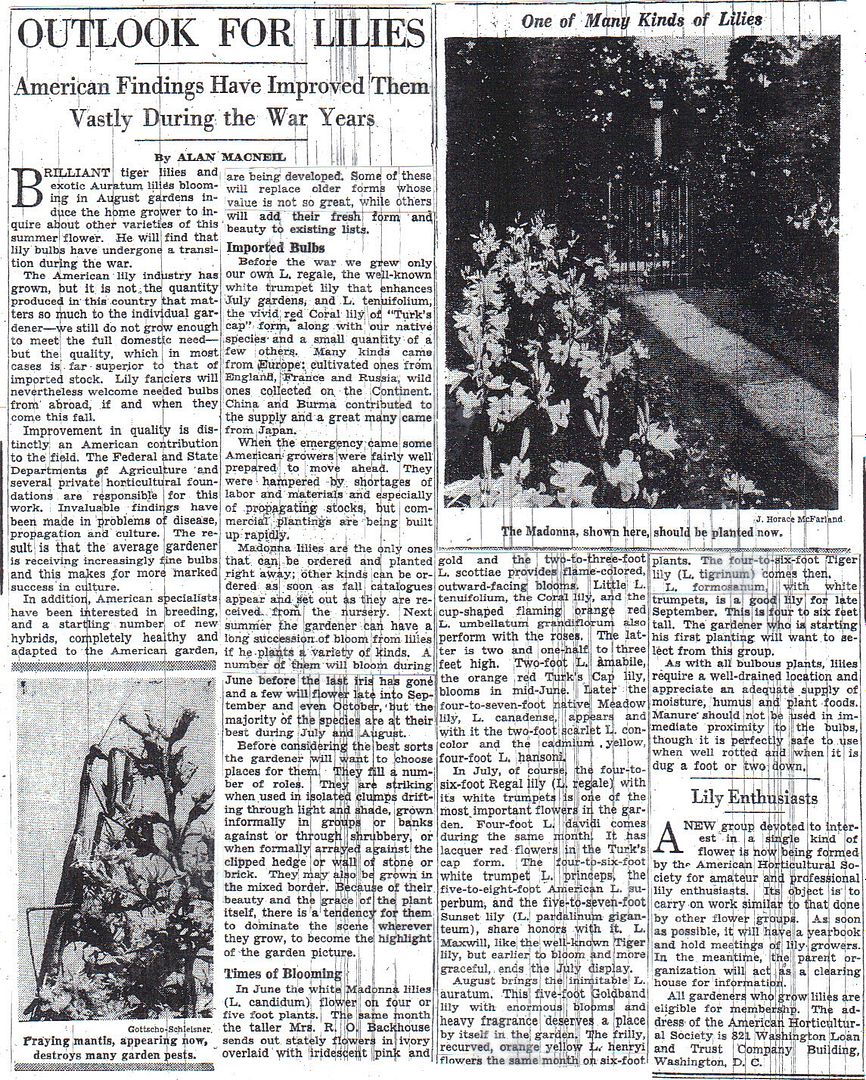
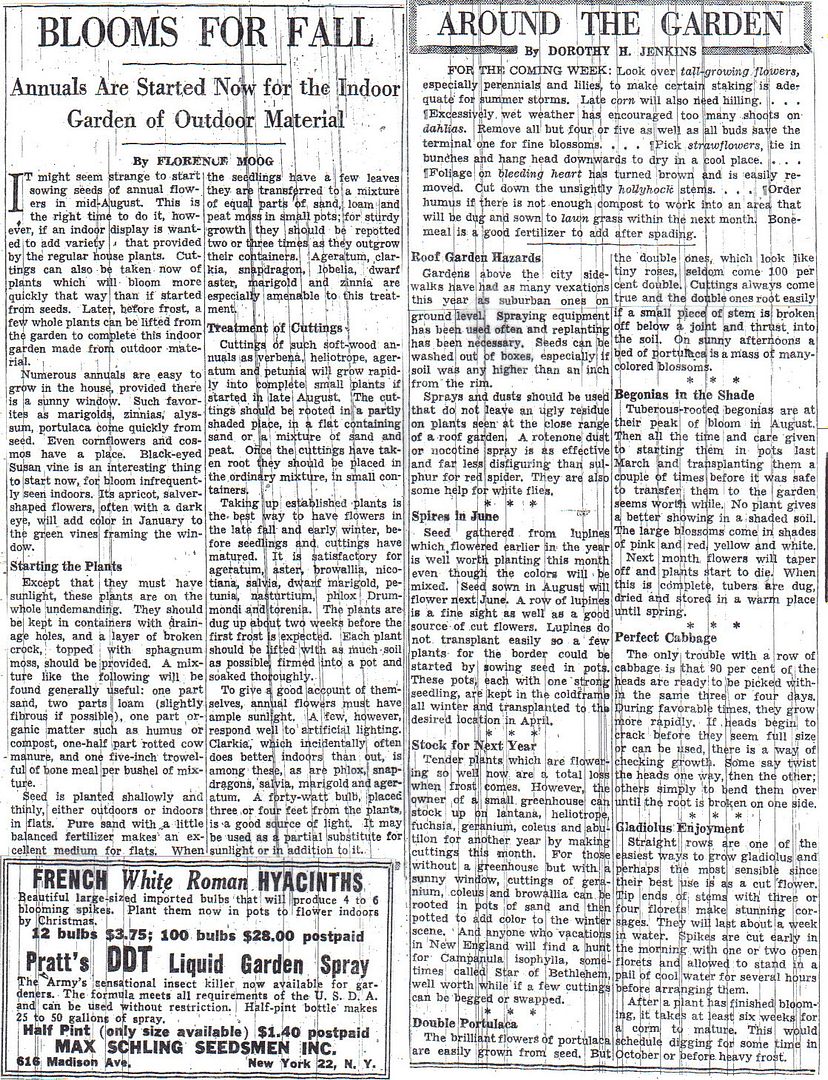

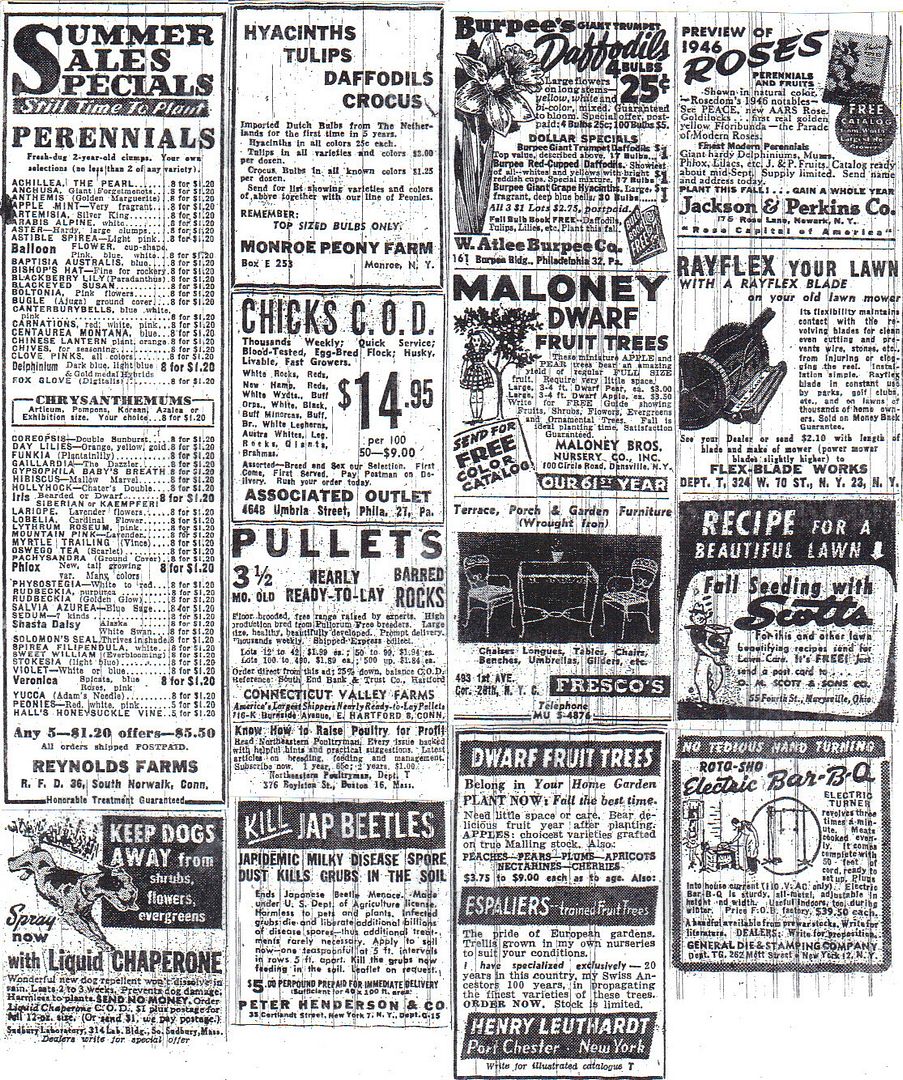
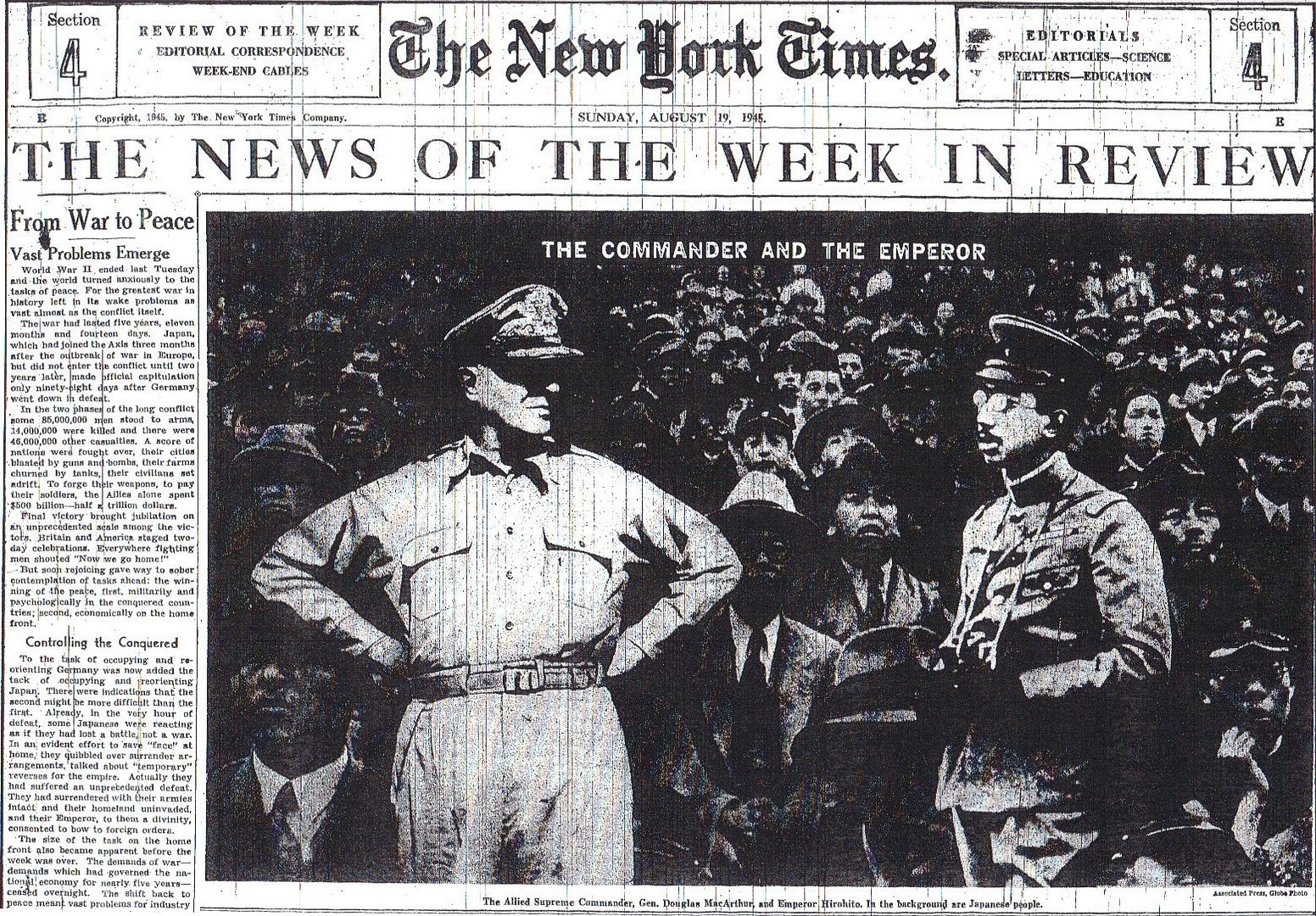
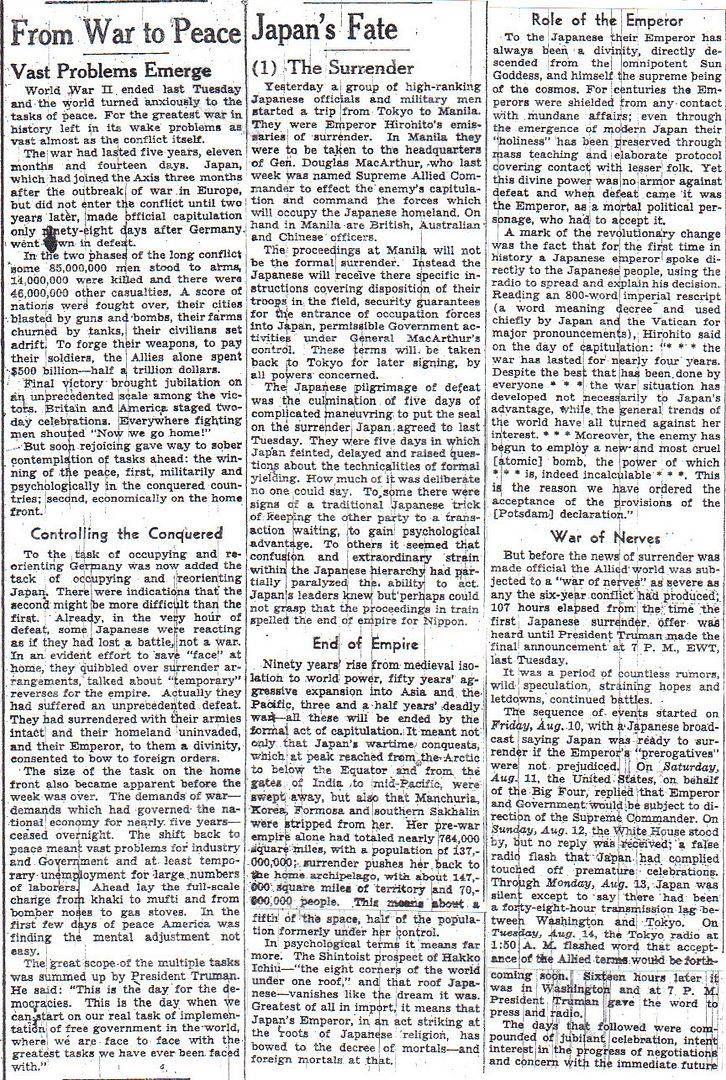
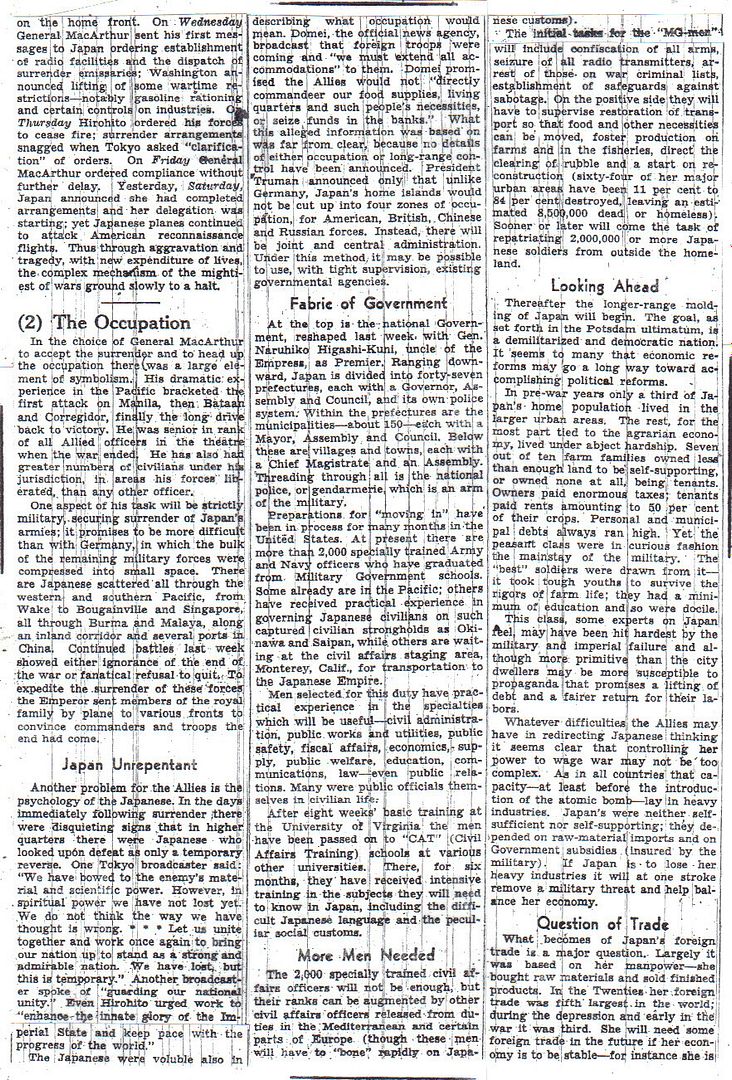
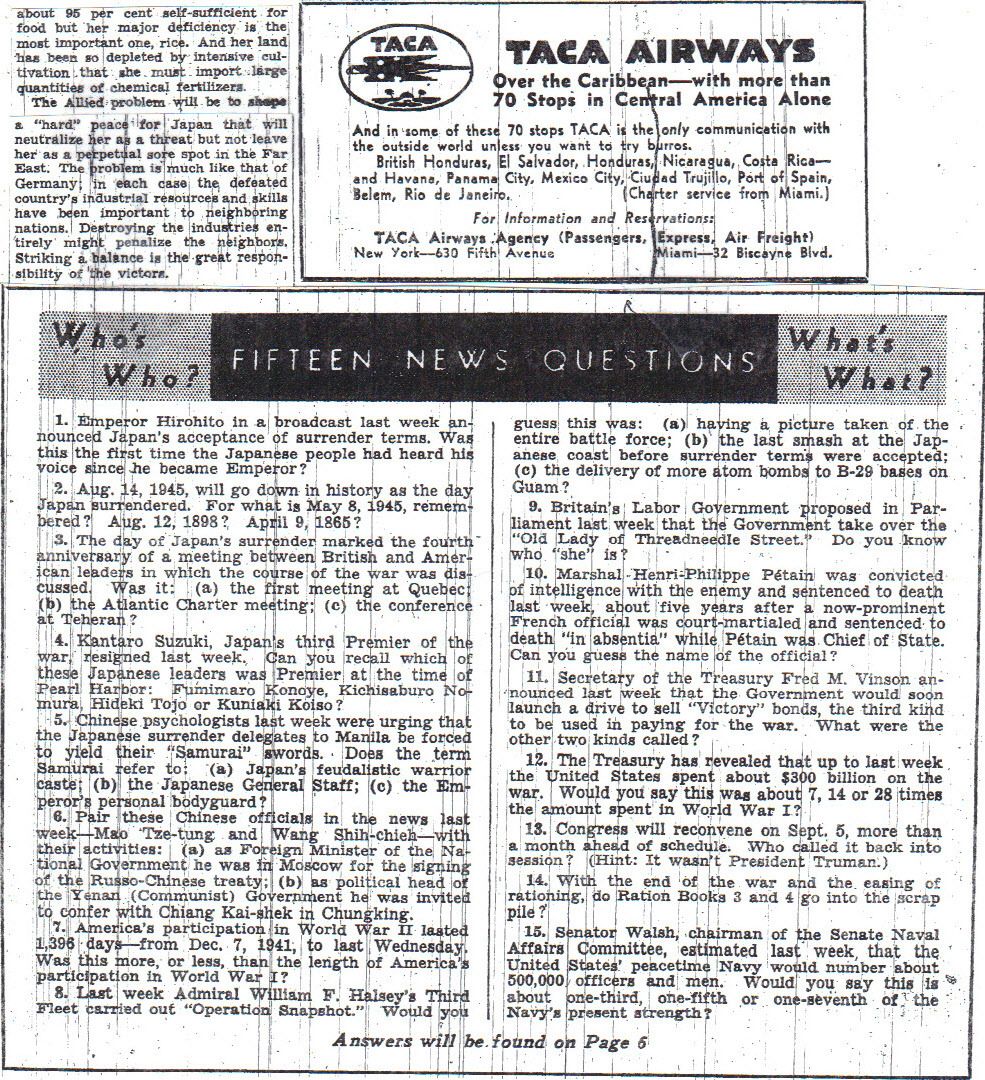
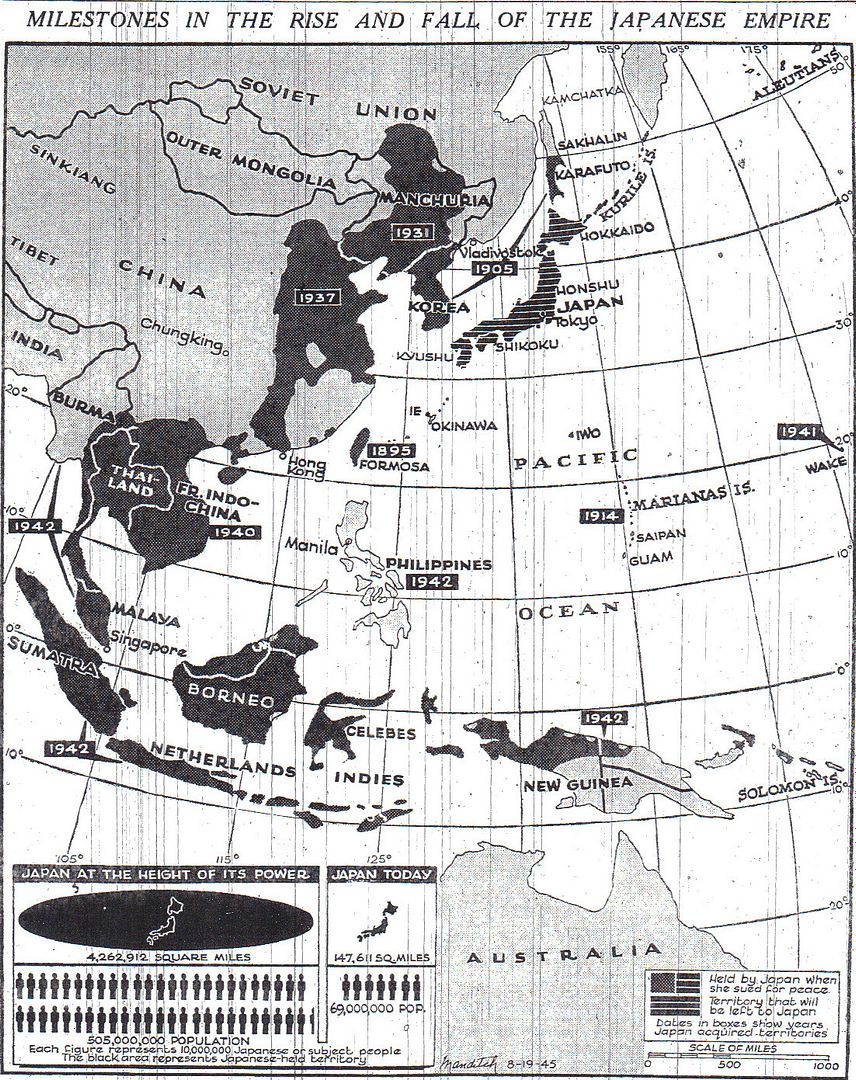
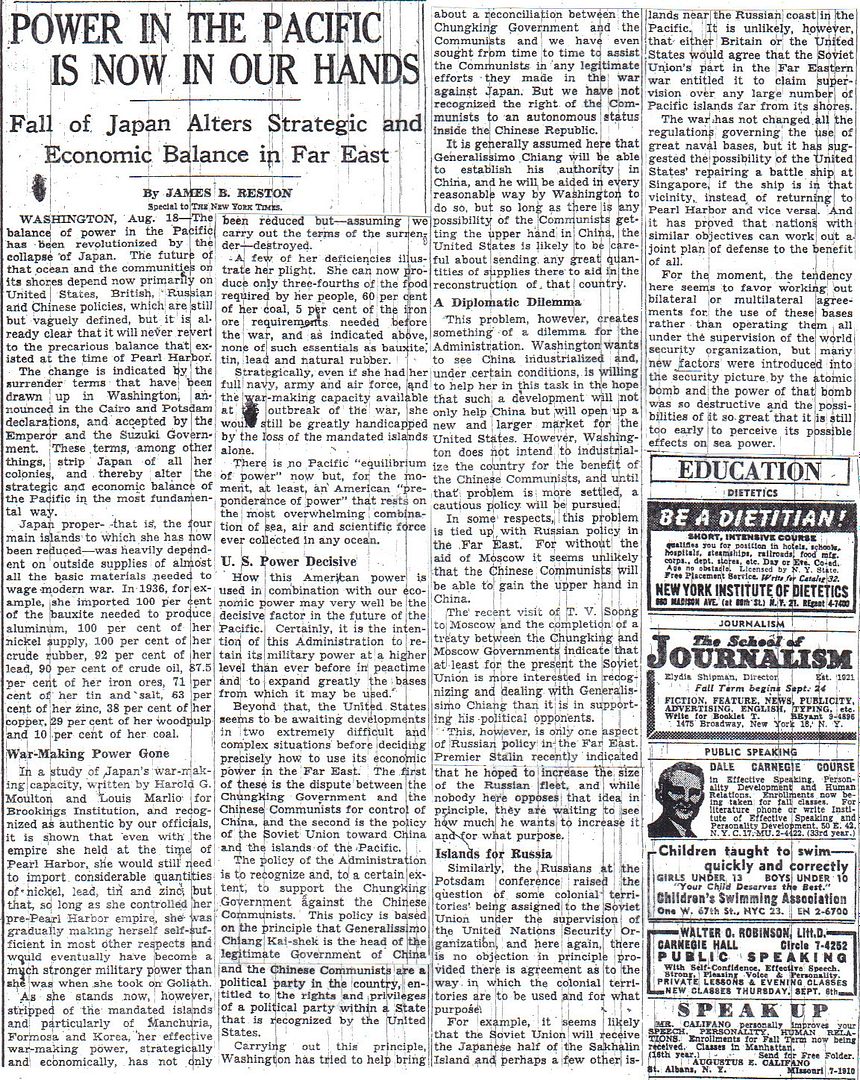
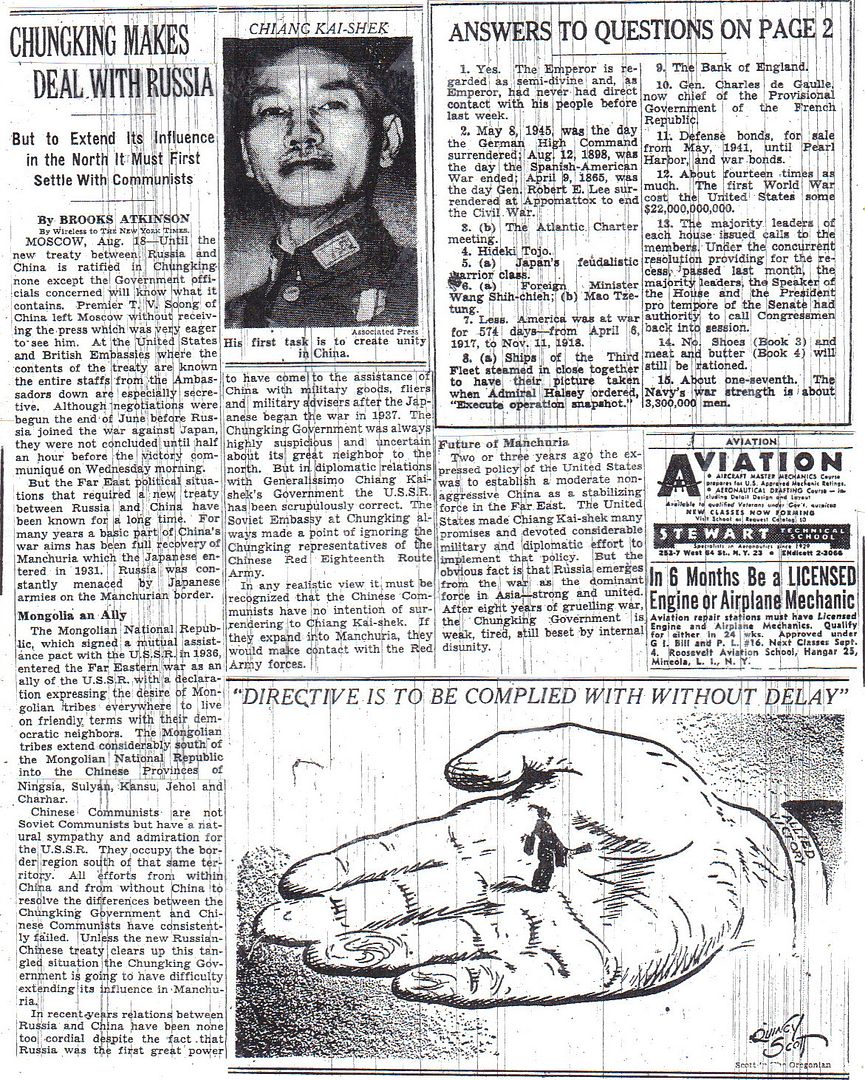
They were forerunners of the SEALS, weren't they?
Wow, I have never seen those photos before. Thanks!
Yes, that's the lineage. Those skill sets were combined into the SEAL program in 1983.
Thanks for that link.
Joachim Peiper Captured
Ultimately the sentences of the Malmedy defendants were commuted to life imprisonment and then to time served. Peiper himself was released from prison on parole at the end of December 1956, after serving 11 and a half years
Residing in France since 1972, Peiper led a quiet and discreet life; however, he continued to use his given name. In 1974, he was identified by a former Communist resistance member of the region who issued a report for the French Communist Party. In 1976, a Communist historian, investigating the Gestapo archives, found the Peiper file.[117] On 21 June, tracts denouncing his presence were distributed in Traves. A day later, an article in the Communist publication L’Humanité revealed Peiper’s presence in Traves and he became the subject of death threats.
On receipt of these threats, Peiper, who remained in Traves, sent his family back to Germany. During the night of 13/14 July 1976, Peiper’s home was attacked. In the ruin, Peiper’s charred corpse was found together with a .22 caliber rifle and a pistol.[118] The perpetrators were never identified, but were suspected to be either Communists or former members of the French Resistance. Coincidentally, 14 July was Bastille Day in France. Peiper had just started writing a book about Malmedy and what followed.[119]
Mamoru Shigemitsu
https://en.wikipedia.org/wiki/Mamoru_Shigemitsu
Post-war[edit]
Despite Shigemitsu’s well-known opposition to the war, at the insistence of the Soviet Union, he was taken into custody by the Supreme Commander of the Allied Powers and held in Sugamo Prison under charges of war crimes. Despite a signed deposition by Joseph Grew, the former ambassador of the United States to Japan and over the protests of Joseph B. Keenan, the chief prosecutor,[6] Shigemitsu’s case came to trial and he was convicted at the International Military Tribunal for the Far East and was sentenced to 7 years imprisonment on Counts 29, 31, 32 and 33 for waging “an aggressive war”. He was paroled in 1950.
USSR usage
Maybe related to UN usage? Also they gained a lot of satellite countries after the war so a “polite” way of what to call the satellite countries?
https://en.wikipedia.org/wiki/Soviet_Union
A member of the United Nations at its foundation in 1945, the Soviet Union became one of the five permanent members of the UN Security Council, which gave it the right to veto any of its resolutions (see Soviet Union and the United Nations).
Some more really good photos of the event, including the last one from December that shows the final fate of the two Green Cross Bettys.
http://www.combatairmuseum.org/ieshima/ieshima.html
http://www.combatairmuseum.org/ieshima/ieshimaphotos.html
Speed limit changed
The main reason for the speed limit was to conserve rubber, not gas? And shortages of cloth caused hemlines to rise? Did they go back down after the war?
http://www.deseretnews.com/article/705285620/Patriotic-Speed-Limit-was-35-mph.html?pg=all
The study showed 46 percent of cars driven by war workers had at least one tire with the tread worn smooth; 23 percent with at least two tires worn smooth; and 11 percent with at least three.
http://www.ameshistory.org/exhibits/events/rationing.htm
Uncle Sam last week assumed the role of fashion designer. Sweeping restrictions aim to save 15 percent of the yardage now used on women’s and girls’ apparel through such measures as restricting hems and belts to two inches,
Hi, I don’t post much on FR, but I just wanted to add my voice in appreciation of all of your WW2 posts, especially these past few months as the war came to a conclusion with our victory.
My dad served in the US Navy during WW2 in the Pacific.
I’ll miss these postings, which I think you said will end after the signings on the Mighty Mo on September 2nd, but clearly the past few days the NYT front pages have shifted toward more domestic USA and civilian issues and problems types of stories.
Thank you.
Since I found the note from Truman to Stalin yesterday which ceded the Kuriles to the Soviets, but made it clear that we would control all of the Japanese main islands, I was surprised to find this Soviet order to prepare to invade Hokkaido.
http://digitalarchive.wilsoncenter.org/document/122334
August 19, 1945
ORDER BY ALEKSANDR NOVIKOV TO THE COMMANDER OF THE 9TH AIR ARMY
COMMANDER OF THE 9TH AIR ARMY COLONEL GENERAL CDE. SOKOLOV
COPY: GENERAL COMMANDER MARSHAL CDE. VASILEVSKII, COMMANDER of the 1st FAR EASTERN FRONT MARSHAL CDE. MERETSKOV
Implementing decisions of the General Commander, I ORDER:
1. For providing air support to the landing of land forces on the island of HOKKAIDO and on the southern group of the KURILE islands, fully use air force of the 9th air army in coordination with the sea air force of the POF [Pacific Ocean Fleet].
Develop a plan of air support of the landing operation and report to me no later than 24.00 on 19.8.45.
2. Prepare 32nd and 34th air divisions for the transfer in full to the northern part of the island of HOKKAIDO and the islands of KUNASHIRI [Kunashir], ITURUP.
For support of the said divisions, provide one air base area consisting of four b[atallions] of a[erodrome] s[upport], area management and the head depot. Make provision for the transfer—for bombing—of 5 (five) units of fuel and 3 sets of ammunition, and 10 units of fuel and 5 (five) sets of ammunition for destroyers.
Provide the transferred air divisions fully with means of radio communication and supply each air division (32nd and 34th air divisions) with one SM[?]-17 plane, which will come to you from the 12th air army.
3. Transfer of the flying echelon is to be organized along the route: KHABAROVSK, KOMSOMOL’SK, SAKHALIN, island of HOKKAIDO.
Land echelons, means of communication and ammunition are to be transferred by sea transport.
4. Provide for the departure for the island of HOKKAIDO with the first departed rifle division the departure [sic] of the operative group from the area management and one b[atallion] of a[erodrome] s[upport] , and with the transferred second air division, send one more [base of] a[erodrome] s[upport] and the entire area headquarters.
5. The timing of the transfer of the divisions and the timing of the conduct of the operation will be supplied by the Commander of the front.
6. Report to me daily [two words unclear] on the progress of the implementation of this order.
MAIN MARSHAL OF THE AIR FORCE NOVIKOV
Title: Nichols Field, Manila as Members of the Japanese Delegation Arrive
Date: August 19, 1945

The sixteen members of the Japanese delegation disembarking from a C-54 transport plan after a flight from Ie Shima to Nichols Field, Manila, Philippines. They are greeted by Major General Charles A. Willoughby from General Douglas MacArthur's staff. They came to Manila to negotiate the Japanese Surrender Agreement. This photograph was given to Colonel Westray B. Boyce during her tour of the Pacific Theatre during the Fall of 1945.
Aerial view of Nagasaki on August 19, 1945 after the explosion of the American atomic bomb.
Getty image. Can’t post on FR.
http://alphahistory.com/vietnam/the-august-revolution/
The August Revolution of 1945 was an attempt by Ho Chi Minh and the Viet Minh to claim Vietnamese independence and self-government. Though successful at first, the Viet Minh was soon supplanted by Allied forces, which occupied Vietnam at the conclusion of World War II. Vietnam had been given nominal independence by the Japanese in March 1945, after they arrested the French governor and his officials and invited emperor Bao Dai to form a government. But Bao Dai, who had been an impotent political figurehead under the French, proved to be little more than a Japanese puppet. There was little faith in his ability to lead the nation, particularly with his Japanese backers facing imminent defeat. Japan’s fate was sealed with the detonation of atomic bombs over Hiroshima and Nagasaki in August 1945, which led to the Japanese surrender several days later. According to the terms specified by the Allies, Japanese forces in northern Vietnam were to surrender to the Chinese, while in southern Vietnam they were to surrender to British Commonwealth forces:
The senior Japanese commanders and all ground, sea, air and auxiliary forces within … French Indochina north of 16 north latitude shall surrender to Generalissimo Chiang Kai-shek … The senior Japanese commanders and all ground, sea, air and auxiliary forces within … French Indochina south of 16 degrees north latitude… shall surrender to the Supreme Allied Commander South East Asia Command or the Commanding General, Australian Forces.
The Japanese surrender provided a golden opportunity for the Viet Minh, the nationalist group led by Ho Chi Minh. Through 1945 the Viet Minh had expanded their numbers and support in the north, with the weakened French and distracted Japanese unable to stop them. In June 1945 Ho Chi Minh’s forces were strong enough for him to claim control of a ‘free zone’ in the north of the country. The departure of the Japanese in August 1945 left a power vacuum, and prompted Ho to call for a ‘national uprising’. “Many oppressed peoples the world over are vying with each other in wresting back independence”, Ho told his followers on August 10th. “We should not lag behind! Forward! Forward!” Responding to his call, Viet Minh forces emerged from their secret bases and hidden positions in the jungles and the mountains. They began to mass and advance on major towns and cities. Their push for independence was aided by the retreating Japanese, who defied the surrender terms and handed political authority to locals rather than Westerners. Viet Minh officials were given access to government buildings and control of infrastructure and facilities. They also acquired weaponry and munitions surrendered by the Japanese.
An August revolution
The August Revolution, as it was later called, proceeded swiftly. On August 19th Viet Minh forces marched into the capital Hanoi. Within another week they occupied other major cities, including Saigon in the south and Hue, the seat of the emperor. Bao Dai was forced to abdicate on August 25th, marking the end of the Nguyen dynasty. One day later, the Communist Party of Vietnam – the political core of the Viet Minh – began preparations for a Vietnamese declaration of independence. On September 2nd 1945 more than 400,000 Vietnamese – double the usual population of Hanoi – gathered in Ba Dinh Square in the capital (see picture) to hear the proclamation, drafted by Ho Chi Minh. Ho’s proclamation quoted extensively from the 1776 United States Declaration of Independence, citing the values of freedom and self-determination...
The TTF — 331st Infantry regimental newspaper.
August 19. 1945 — Victory Edition
http://83rdinfdivdocs.org/documents/newspapers/331st_The_TTF_August_19_1945.pdf
The Voyage Home
The Trooper
A newspaper of the USS General M. B. Stewart describing their voyage home
The following is a transcript of the final edition of the The Troooper, a newspaper that was printed on-board a ship that was taking soldiers from Italy, through the Panama Canal with a destination of Manilla in the Pacific Theater. The USS General M.B. Stewart (AP-140) departed from Leghorn, Italy on August 7, 1945, carrying 3000 US servicemen for the battle against Japan. The troops consisted of several engineering battalions of the 5th Army, medical battalions, and an air force squadron. The Troooper was printed to keep up the morale of the troops. These papers were simple memographed pages with sketches provided by the editorial staff.
This edition of The Trooper was a souvenir issue distributed at the end of their voyage and included jokes, poems and stories about their last voyage. It shares their excitement when it is announced that Japan has surrendered and the ship would be headed for New York City. The 3000 men broke into celebration, tears and pure joy of freedom---freedom from war.
Falling two points short of going home, PFC Warren G. Stichtenoth, Company C, 310th Engineer Battalion, 85th Infantry Division, found himself in Leghorn, Italy, in early August. He boarded the USS General M. B. Stewart (AP-140), which was bound for a destination in the Pacific via the Panama Canal with more than 3000 US Servicemen. Departing from Leghorn on August 7, the ship headed first to Gibraltar and then into the Atlantic Ocean. Word of an “atomic bomb” was heard on-board followed by news that the Russians had joined the war in the Pacific. The vessel and its passengers were in the middle of the Atlantic Ocean on August 14 when news came of the Japanese surrender. The next day the ship’s captain received new destination orders and set a course to the northwest for New York. The USS General M. B. Stewart, full of happy servicemen, arrived in New York harbor on August 19, 1945--the first troop ship to arrive in New York after the war ended.
As Warren Stichtenoth related details of this voyage to his family, he said the troops on board heard that the ship’s captain may have secured the help of a brother in the Pentagon who arranged the change in destination. The majority of the servicemen on-board were part of non-combat units, including the 715th Railway Operations Battalion, the 31st Ordinance Heavy Maintenance Company, the 576th Signal Service Company, and others. As Stichtenoth recalls, the combat veterans had three days to teach the non-combat units how to march and carry a rifle so as to appear like battle-tested troops when they arrived in New York.
The USS General M. B. Stewart, AP-140, arriving in New York.
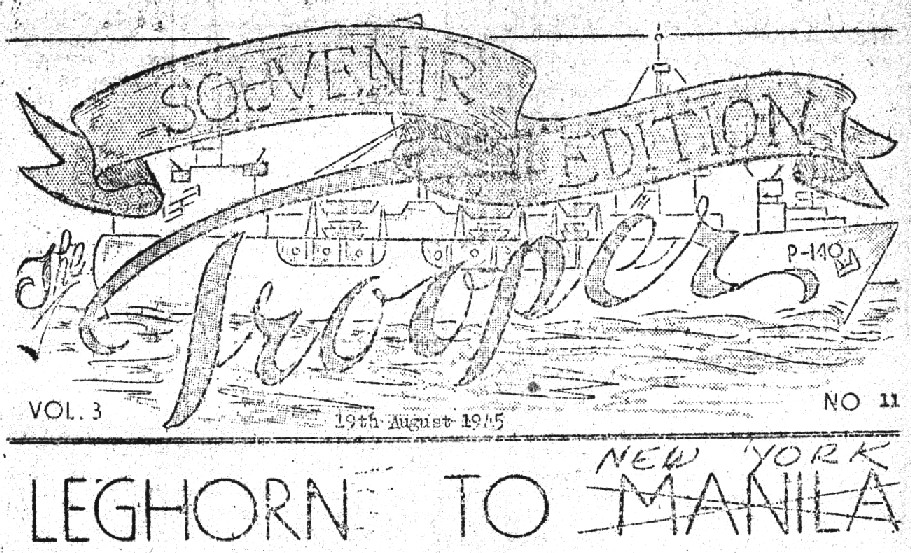
LEGHORN TO MANILA….NEW YORK:
A HISTORY MAKING TRIP – AUGUST 7-19, 1945
This voyage of ours offers many interesting contrasts in emotions. Consider how depressed the great majority of us were when we boarded the old General Stewart in Leghorn. Even when we sailed from the Italian shores, there were many of us who felt a twinge of nostalgia for the friends we left behind, for the places we had lived, for the sights we had become accustomed to seeing. There was a rumor being passed about the ship that we were bound for the Philippines. At any rate we were heading for the Pacific area by a direct route with no stops in the States.
Then the news of the first atomic bomb gave our spirits a much needed lift. Perhaps, we thought, this is the end. Some of us prayed, for the thoughts of enduring such a long voyage and then spending at least another year over in the Pacific area, were not pleasant thoughts.
Our spirits continued to rise with the Russian declaration of war on Japan. And who will forget the spontaneous outburst of cheering and the general feeling of good fellowship which everyone experienced when the news of the Jap surrender came through?
And now we are going home. What better feeling can a man have? Home to those we love, to the scenes we love, to the land we love.
We are nervous in our anticipation to feast our eyes once more upon the shores of “the home of the free and the land of the brave”.
J.B.D.
“COMPANIONS IN ARMS”
It takes all kinds of people to make a world, and all kinds of soldiers to make an army. Aboard the General M. B. Stewart, there are the type of troops who do the working and the fighting of a successful army.
The closest type of support work in the Italian campaign was provided by the 182nd and 169th Engineer Battalions. The most direct line of supply, the railroad, was kept running freely by the 715th Railway Operating Battalion. The stuff with which men turn defeat into victory was produced by the 31st Ordinance Heavy Maintenance Company. Communications were direct, and vital parts of the Fifth Army were kept in touch with one another by the 976th Signal Service Company. The wounded were evacuated by the 551st Motor Ambulance Company and treated by the 161st Medical Battalion. The planes that provided the air cover were serviced by the 479th Aviation Squadron.
These organizations aboard are among the ones that make up the backbone of the United States Army. The skill and lessons learned, and experiences endured will well aid in the finding of success in civilian life.
TO THE PASSENGERS
You have been good shipmates, and it has been a pleasure to have you on board.
I hope you will all get to go home permanently, and that you will never have to participate in another war. “Peace in our time now appears to be a certainty.”
Good-bye and good-luck. See you at the American Legion Conventions.
Be sure to wear your steel helmets!!
M.C. Heine
Captain, U.S. Navy CHRONOLOGY OF TRIP
LEGHORN TO NEW YORK
AUGUST 7 to 19, 1945
Tuesday August 7th – Leghorn, Italy.
We sweated aboard wearing packs and dragging duffel bags. Gave our quarters the once over.
Wednesday August 8th – Italy moves slowly away. We got our first look at the ship and amazing number of “Off Limits” signs. Incredulous stories are coming out about our use of an atomic bomb of unbelievable power.
Thursday August 9th – Making our way through the Mediterranean. Much to everyone’s disappointment, there are no WAC’s aboard. Several men were seen wearing complexions to match their fatigues, due to the peculiar motion of the ship. The first of many cheers to arise was heartily sounded when we heard the news that the Russians had thrown their hat into the ring.
Friday August 10th – The “Rock” looms ahead through a veil of fog. Everyone ascends from the bow of the ship to give Gibraltar the once over at close range.
Saturday August 11th – After a day at Gibraltar for refueling, we hit the open sea again. The rumors are around that the Japs have offered a surrender. Later news confirms this rumor.
Sunday August 12th – Washington wastes no time in replying to Tokyo. Emperor Hiro Hito must take his orders from the Supreme Allied Commander. Shipboard life is becoming routine. From “Up all hands” the winding show line to the “Abandon ship drills”.
Monday August 13th – No answer from the Japanese yet. Every ear was cocked for the slightest report. Copies of the “Trooper” were at a premium.
Tuesday August 14th – Sailing weather was fine. Many men were trying to acquire quick sun tan. Just as everyone turned to for the evening, the great news arrived. At 1035 hours President Truman announced the Japanese capitulation. The morale is definitely good.
Wednesday August 15th – Today was declared a holiday. A victory was sounded by the Navy’s five inch guns. There seems to be an air of expectancy about something. Our expectations are justified at 1520 hours. The public address makes the vital announcement – “now hear this. The ship’s destination has been changed to New York.” The ship’s sides shook with cheers, backs were sore from being slapped and pounded but no one minded. We are going home. Morale is “superior”.
Thursday August 16th – Sweating it out. The big question is “How far do we have to go?” There is much talk about furloughs.
Friday August 17th – Two more days. The weather is stormy and the sea is choppy. Men line the rail watching the flying fish skitter over the water.
Saturday August 18th – One more day. A long day. Eyes strain for the coast line.
Sunday August 19th – That old flame who has been carrying the torch for us and for thousands of others like us is just ahead. Good old U.S. soil today. What a trip! One never to be forgotten by the passengers on the U.S.S. General M.B. Stewart.
S. L. MacInnis
FELLOW VOYAGERS
Another group of skilled technicians aboard this vessel is the 31st Ordinance Heavy Maintenance Company. This unit of tank fixers and watch repairers were activated at Ft. Benning Georgia, August 1, 1940. They arrived overseas at Oran, Algeria. At that spot they spent some six weeks in the base shops. The rest of the time in North Africa was spent in water-proofing vehicles for the Fifth Army to use in the Italian invasion. The organization was transferred to Naples on October 10, 1943. In Caserta, Naples, Anzio, and Gross____ they put in long hours assembling newly shipped material for front line service. However, their biggest labor was in Florence at the famous Fifth Army “Willow Run” ordinance plant where they performed instrument and automotive operations. In recognition of their fine record of service they were awarded he Fifth Army Service Plaque. Commanding is Capt. William B. McLean of North Carolina. He has 31 months overseas to his credit.
-------------------------------------------------------------------------------------------------
The 161st Medical Battalion (Sep.)
Traveling with us are the Headquarters Detachment of the 161st Medical Battalion. They formerly were a part of the 16th Medical Regiment that arrived originally in England. Afterward, the battalion consisting of a clearing company and three collecting companies served extensively in Africa and relieved the wounded of the Italian invasion. Their main duties have been the maintenance of clearing stations and evacuations by motor ambulance of the wounded of most of the divisions of the Fifth Army.
This organization is commanded by Lt. Col. James B. Seaman of Texas. A Regular army officer of 23 months oversea service.
IT’S GREAT TO BE BACK.
GIVE ‘EM HELL, MEN!!
On the morning of August 19, the troops aboard the U.S.S. General M.B. Stewart will begin to storm the beaches of New York City. The troops will be led by that indominable beach comber beach master, Major Drummond. Successive waves will follow at thirty minute intervals. Upon gaining the beaches troops will head for previously selected objectives. Once objectives are secured and troops are consolidated, all men will await further orders before moving forward.
Troops are warned that the natives will appear to be very friendly. Be on guard against the female natives especially. They will probably hug you and kiss you but you men must be firm and resist all such advances by these natives. Fraternization may be carried on to a limited extent. No doubt some of the natives will bear names which are similar to yours and some may even claim to be related to you. Pay no attention to these claims. However, if some of the natives invite you into their homes, you must accept even though the idea is distasteful to you. At all costs we cannot take any risks of offending the natives. In order to alleviate any difficulties which may arise in the event that you are invited to spend some time in the home of some native, here are a few observations which we pass on to you for your information and guidance.
In the average home of the native American, you will find that the male is the master of the house and that the female of the house is called a wife, does all the work about the house including such familiar duties as K.P., latrine duty, guard duty, and other assorted duties. When the male or the female drives his or her automobile into a refueling point known as a “gasoline station”, he or she tells the attendant the amount of fuel desired and then instead of showing the attendant a trip ticket they give him some money. This procedure is no doubt strange to many of you. This custom is known as “paying”, in our language the word is “pagarente”. This same custom is extended to the procuring of all articles of clothing and supply.
If during the late hours of the night you feel the desire for something to satisfy your appetite, it is not necessary to creep quietly to the side of the Mass Sergeant and lick his hand. On the contrary, just walk out to the kitchen and help yourself.
However, you must not be misled by the apparently rosy picture of life in America. Although at first glance there may seem to be some advantages to this sort of life there are nevertheless many disadvantages. For example there are no comfortable eight-holers where a man may pick up choice rumors and the latest magazines. Nor is there any cheerful clinking of mess kits to bring music to your ears as you stand in line with three hundred other jokers waiting the K.P.s to stop eating and start serving. The native Americans do not have a CQ who checks up each night to see that you are comfortably settled in your cozy little bed. Nor do these natives have the bracing rhythm of marching feet and the bark of intelligible commands to bolster their morale. When the natives attend the theater, they must sit through a complete show. There must be no breaks in the show when a man may get to his feet and stretch and sneak a smoke. Although the natives will probably boast of their food do not believe what they say. They eat fresh vegetables and fresh meet and do not have sanitary benefits of eating from cans.
Of interest to you will be a few words on the women of this country. There is a group of very young women who have the annoying habit of swooning and shrieking whenever they hear their leader chanting. This leader is called “Frankie” and any gathering of this group which is known as the “Robert Soxers” or more familiarly as the “Bobby Soxers” is to be avoided inasmuch as males are in danger of their lives. Women of this country speak English fairly well and the great majority will possess no knowledge of Italian. Hence, when you meet one of those female natives, it is considered good manners to say, “Hi Ya, babe” or “What’s cookin’?” but under no circumstances should such phrases as “Dove casa” or “Quanta costa” be used inasmuch as they will not only be unknown to most female natives, but also a few females may recognize them and you might be subject to arrest by a police official of the American native constabulary, better known as a “cop”.
We are sure that after this briefing on the natives of America and their customs, you will realize how fortunate you are to be in the army. We have no doubt, that many of you dread the day when you will be discharged from this – our little home away from home. However, be that as it may, let us go forward and make this invasion as successful ass those in the past have been.
GIVE ‘EM HELL, MEN, GIVE ‘EM HELL!!!!!!
John B. Douglas
Associate Feature Editor
Souvenir Edition
------------------------------------------------------------------------------------------------
Moe: I hear your house burned down.
Joe: That’s right but I’m satisfied.
Moe: And they say your business is failing.
Joe: Yes, but I’m satisfied.
Moe: With such troubles how can you be satisfied?
Joe: I smoke Chesterfields.
OUR MOTHER’S FAITH
They have prayed for this.
We know it now.
They prayed and kept a faith
Stronger e’er than moved the mount.
A war has ceased.
A ship has changed its course.
Bearing their sons—
Not far away---
But home.
- Donald G. Merrill
CHAPLAIN’S CORNER –
OUR CAUSE TO GIVE THANKS
Victory came in Europe! Peace for those all around us. But war clouds in the Orient were hung on our horizons. Not for a moment could we fully rejoice. Some of our buddies were screened out and sent home or assured of remaining in peace.
But how the American soldier can take bitter medicine! Suppressing our strong desire to enjoy peace and go to loved ones as others around us were doing (even our prisoners of war and our co-belligerents), we set our faces toward Japan. We knew that if we had a job to do we would do our best at it.
But silently we prayed. Then blow by blow the darkness of the war clouds were driven back—atomic bombs, Russian entry into the war, Japanese suit for peace, and finally the diversion of our ship’s course toward New York. Hearts that had almost ceased to feel were moved by the crescendo of events ‘till at the grand climax our voices rang in shouts of joy. The song “God Bless America” was spontaneously repeated over and over again. Silently men gave thanks to God. Surely he has given us all the desires of our hearts. No place on the ship was large enough to accommodate the crowd that tried to attend the divine services conducted by an Army Chaplain and a Navy Chaplain. The sea was as smooth as glass that grand morning as we gathered on top side and publicly gave thanks to God. Our blessing is unique and our gratitude is deep. We expected to be the last to get here, and now we are to be among the first. We faced war and found peace. Before God let us walk worthy of this favor in our future days.
- Chaplain Earl D. Hunter, USA
** TROOPER STAFF**
Editor………………………. R. Gallier, 1st Lt., Inf.
Ass’t Editor…………............ Pfc. DeLacy
News Editor………………... T/4 Hutchins
Feature Editors……………... Pfc. MacInnis - Pfc. Hershanbart
Art Editor…………………... Sgt. Jazgier
Sports Editor……………….. T/4 Douglas
Humor & Poetry…………… T/4 Deem
Production…………………. T/4 Schmitt - T/4 Ackley - Pfc. Mickle T/5 McReynolds
At the completion of our voyage, I take this opportunity to thank the Staff of the “Trooper” for the long hours of work voluntarily given, that enabled us to print a daily paper for the information and amusement of all troops and the Navy personnel of board.
(signed)
R. A. GALLIER, JR.,
Ist Lt., Infantry,
Editor.
COVER PAGE
The cover page, map and cartoons of this souvenir edition have been drawn by Sgt. Eddie Jazgier.
- THE BIG NIGHT -
It was a dark night, the moon was hidden by heavy clouds, the sea was choppy if you remember, and the ship was rolling…yes, it was rolling – rolling right on to Panama, and maybe on to Manila, where we were all headed the evening we said good-bye to Leghorn and the shores of Italy. That was the evening of August 7th that we said good-bye. This was the night of August 14th – just about seen days later, but Oh! What a different outlook for the men aboard the USS Stewart. In those seven days we heard the news about the great atomic bomb…..we heard the news about the Russians joining the war…that news had caused a big cheer when it was announced back there in the Mediterranean. Then had come the news that Japan had offered to surrender. “It can’t be true!” we said to ourselves. “It’s just another rumor started in the states…..or does Japan want to surrender…..maybe she realizes it is better to quit now than to be destroyed by our new secret weapon the “atomic bomb”. There is Russia too…..maybe Japan has had enough…..it might happen, but what difference will it make?….we are already headed for Manila…by the time they actually do surrender we will be there…..sure it will be good to have the war over, but we will still be stuck out there in the Pacific……of course, there could be the possibility that we would be diverted to the States if the firing ceases soon enough and the war does actually end…..oh, that’s too much to think about. It wouldn’t happen to us”. These were the thoughts running through every man’s mind from the moment the news of the Japanese surrender offer was announced. Tense days followed. The U.S. replied to the Japs’ offer the following day.
Then came hours of waiting that turned into days of waiting…..waiting to see if the Japs would accept the U.S. reply!
Men hoped they would, but feared they wouldn’t…feared that something would go wrong and the war would go on…..and we would go on rolling along to Manila.
Then came the night of August 14th…a Tuesday night. All day long the men on the USS Stewart had stood around the loud-speaker over on the starboard side waiting for an important announcement that never came. “No, I guess the Japs are not going to reply,” was the general tome of conversation spreading around the deck.
At 9:30 P.M., when quarters’ call sounded “Lights out” – “turn into your bunks – silence about the deck”; another day was over; the war was still on, and we were rolling on to the Pacific. By 10:00 P.M., most of the men were in their bunks, the lights were out in the holds, only a few remained on deck, hanging on to the rails, just thinking and watching…..watching the water, the stars, especially the “north star”…Yes, we were headed southwest…..right for Cuba and the Panama Canal. The deck was quiet only the swishing of the water against the ship broke the silence out in the mid-Atlantic.
Then from the speaker, that the men had stood in front of all day long waiting for some word, came the announcement: “President Truman has just announced the surrender of Japan.” The War is over.” All hell broke loose on the ship. The few men that were up on deck yelled and screamed, “The war is over! It’s all over!!!” Their cheers brought three-thousand wild-eyed, jumping GI’s --- most of them in their shorts tearing out of the holds. It was the wildest, happiest three thousand men to ever ride the waves of the Atlantic. They jumped…they yelled….they screamed…..they almost cried….some did have tears in their eyes…….they slapped each other on the back…..they slapped officers on the back…..then someone started singing the “Star Spangled Banner”, and every man on deck joined in. Then came “God Bless America”. It was all spontaneous…..the songs just burst forth…cold chills ran up and down your spine….it was a grand and glorious night….a great night….for the first time in years the world was at peace…..as one of the Negro boys aboard put it, “God, now’s the time to turn on dem lights all over the world again!” Yes sir! The lights are on again all over the world. The chant went up to the Navy to “fire the guns---fire the guns.” “Turn the ship to the North, it’s all over.” Yes it was a big night for three thousand GI’s, officers and Navy men about the USS M. B. Stewart out in the Mid-Atlantic.
Oh yes, it had been a dark night and a rough sea….but if you noticed, the moon came out from behind those heavy clouds while those happy men were giving out with “God Bless America”, and when all the cheering was over and silence reigned in the Atlantic, if you noted, the sea was very calm. Everything throughout the world was at peace again. Yes, fellows, it was a big night.
“THAT WONDERFUL MORNING”
Yeah fellas, it was a big night that evening of August 14th, but remember August 15th?...a Wednesday afternoon?....The morning after the war ended. In the morning, the first question you asked…”Are we still headed south? Do you think there is a chance of us getting new orders?...say maybe go into an eastern port…yeah you think we will….you say there is a rumor the ship’s captain already got new orders…well why doesn’t he announce it?...Naw heck! We won’t get any new orders. Washington won’t be thinking about us….we’re in the army…You know how the army goes…we’ll go on to Panama and then brother, you’ll be lucky to get to San Francisco…we’ll probably have to go on to Manila even if the war is over…What’s that fellow saying…says the sister ship of this darn tug received orders to go into port at Norfolk and they were headed for Panama and Manila too…Hey! Boy that sounds good; maybe we might get new orders…But no, we are too close to Panama….we’re headed south and now we will be lucky to get home in a couple months. That sounds pretty good though about the sister ship. Gee! Wouldn’t it be swell if they did radio new orders and we get to go into New York….man, that would be too good. I’m from Brooklyn and New York…wow...I’d be home in… Whew! Ah gee, I’d be home in two days myself….It’s only about 18 hours to Chicago and buddy, I can just see myself walking down State Street and Michigan Blvd…you say you live in Florida?...Well, that’s the way it is; everybody can’t get home in a hurry…Maybe they got trains running down there by now Lou….Aw but what the heck, we aren’t going home…we’re headed south…I tell you, Washington has forgotten about us…remember buddy, you’re still in the army and you know the army…”
“Arguments…rumors…reports, but still we go rolling along…rolling along to the south…right on to Panama and then on to Manila…”Yes sir buddy, it was a great war and it’s swell that it is over but oh man, how I’d like to see those states…that good old USA.” Those were the rumors…those were the questions…those were the thoughts in the mind of every man aboard this ship…3,000 minds of GI’s and army officers and the thoughts too of a hell of a lot of navy men and navy officers on board this rolling ship. Those were the thought as six A.M. ...7 A.M…8 A.M…9 A.M…10 A.M…10:15 A.M…10:18 A.M…10:19…
Then at ten twenty…10:20 A.M., Wednesday morning, August 15, 1945…Wheee… Remember the whistle that came over the loudspeaker every time there was an announcement to be made…It was another announcement…probably that troops would have to continue fire drills until they got the time down to three minutes or less…but no, this was the announcement in a very quite dull-like tone…”The ship’s destination has been changed to New York…Wow!!! Talk about celebrations…3,000 men went absolutely nuts…Guys cried…GI’s screamed, “We’re going home buddy…we’re going home…we’re on the way…I’ll be home by this time next week…Hey man! Washington didn’t forget us after all….we’re going home”…It started all over again…Yes, last night was a big night but this was a bigger day. Men ripped the shirts right off the backs of their buddies…GI’s slapped officers on the back…and officers hugged privates…billie clubs the guards were carrying went sailing out to the fish in the Atlantic…hats went off into the air…the deck was a scrambling madhouse of 3,000 GI’s, officers, navy men and navy officers and marines…yeah man! Don’t forget those Marines, they were right in on it too…and heck fellas, you can’t describe a scene like that… some men stood around with tears in their eyes, there was no doubt about it this time…guy’s thoughts of seeing their wives again…seeing his Mom and Dad or sweetheart was too much…some guys couldn’t even talk…some guys tried to talk but their tongues were twisted with excitement. “Home buddy, think of it, we are going home…back to those things we left so long, long ago: back to those people we love…back to those old familiar street and neighborhoods. Yes sir buddy, it’s really all over now…we’re going home…Ah! It’s that too good to be true. Honest it’s just like a dream…what a break we got…headed for Manila, almost to Panama and now here we are headed to New York…think of those guys back there in Italy…Gee! We thought they were lucky getting to stay there for a few more months instead of going to the Pacific. Gee whiz Mac, guess I’ll have to go see my old buddies, Mom, Dad and wife and baby…Ah! I still can’t believe it…something is liable to happen yet…Hey! Why doesn’t this ship go faster…Seems like we slowed down an awful lot since we changed course to New York…and look how much smoother the water is out there…it’s jut like glass…not even a ripple in it…not even a little ripple…I’ve never seen it like that before in the Atlantic…yes the world is really at peace.
All day long the men hugged the rail on the ship…everybody just wanted to stand there and watch the water…thinking how swell it is going to be…thinking whether they would call up from New York or wait and surprise the folks. Thinking of how it is going to be to crawl into fresh, clean sheets at home for the first time in maybe three years…thinking how peaceful the world seems now.
Late at night men still lined the rails…no one wanted to go to bed…their thoughts were too much on home…on their folks…on everything that goes with home…on chocolate malts, on good big glasses of fresh milk…milk think of it!! Fresh milk!!
The night was cool and the stars were bright, the lights were on again all over the world…During those hours…those happy hours that men lined the rails gazing at the water and stars, thoughts cam back on all the things that happened “over there”. The tough times…the funny incidents, but always the thoughts went back to home. What a break for 3,000 men. Why couldn’t those men we left back in Italy, those old buddies, get the same break? Yes most of them will be home in a few months but there’s some that will never be coming back…a lot of old buddies a man couldn’t help thinking about even though he was tense with enthusiasm. Thoughts ran back to those old buddies that won’t be coming home…they weren’t forgotten even in moments that a guy’s enthusiasm was at its highest.
Yes, it was a wonderful morning…a great day…a day that no one aboard will ever forget. Never could there have been a happier 3,000 men out in the mid-Atlantic. It was a great exciting trip…probably the most exciting trip in history (man) has ever made across the Atlantic.
TO ALL TROOPS ABOARD:
There is little doubt but that your voyage aboard this troopship will stand as one of the high spots in the life of each of you. No man even dreamed, as he boarded the transport in Leghorn, that his destination would be other than Manila, Okinawa, or some other Army base close to Japan. In one week, while we were a sea, the United States Armed Forces introduced the Atom bomb to Japan; Russia entered the war against the Japanese; Japan asked for peace, and surrendered; the war ended; and the ship’s destination was changed from some far distant Pacific base to New York City. In lieu of coconuts and jungle bases, you’ll have leaves, furloughs, and perhaps soon, discharges for many. We are glad to be the ship that delivered you home.
Of all the troops heretofore carried by this transport, none have conducted themselves better than the units now aboard. The cleanliness of all troop spaces, your conservative use of fresh water, your respect for all the ship’s troop regulations, reflect you to be the veterans you are, and your willingness to maintain the discipline required; playing the game as only real soldiers will do.
The best wishes to all the ship’s complement to go with you as you return to your homes, and wherever your next army assignment takes you. We hope you enjoyed your trip aboard the transport and that it will long remain a happy and pleasantly remembered one. Good-bye! Good-luck!.
(signed)
Alfred A. Drummond
Major TC.
Army Transportation Officer

List of Units on board USS General M.B. Stewart (AP-140)
Most of these units were in Italy under the command of the 5th Army.
182nd Engineer Battalion
169th Engineer Battalion
715th Railway Operating Battalion
31st Ordinance Heavy Maintenance Company
976th Signal Service Company
551st Motor Ambulance Company
161st Medical Battalion
479th Aviation Squadron
If my memory serves, another Fat Man plutonium bomb would have been ready to drop today if the Japs hadn’t surrendered.
I wonder where it would have gone.
Seems there were lots of rumors running wild in Japan that Tokyo was next.
Disclaimer: Opinions posted on Free Republic are those of the individual posters and do not necessarily represent the opinion of Free Republic or its management. All materials posted herein are protected by copyright law and the exemption for fair use of copyrighted works.